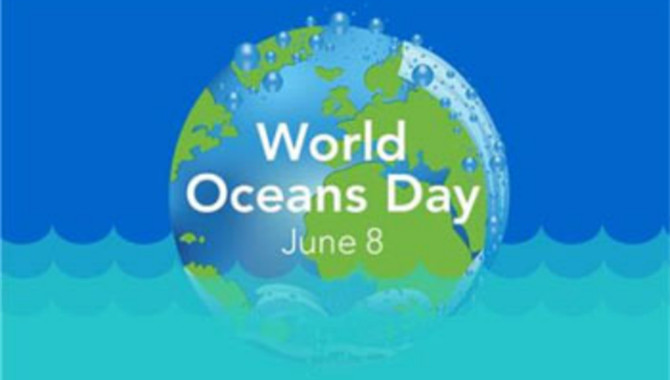
June 8 marks the 14th World Oceans Day and the 15th China Oceans Publicity Day. This year's theme is "Protect the Marine Ecosystem". This theme will continue throughout the 14th Five-year Plan.
In recent years, the aggravation of Marine pollution has become one of the increasingly severe environmental problems in the world, and the damage caused by ship emissions bears the brunt.
On June 7, IMO published article titled "Lowering Containership Emissions through Just In Time Arrivals" to introduce JIT can help reduce emissions of ships, especially containers.
Just In Time (JIT) arrivals allow ships to optimise speed during their voyage to arrive in port when berth, fairway and nautical services are available. Containerships can reduce fuel consumption and resulting carbon dioxide emissions by 14% on a per voyage basis using JIT arrival, according to a new study, commissioned by the IMO-Norway GreenVoyage2050's Global Industry Alliance to Support Low Carbon Shipping (Low Carbon GIA).
JIT is an important tool that can contribute to a ship attaining its required carbon intensity indicator (CII) and associated CII rating in accordance with IMO’s short-term GHG reduction measure, which will enter into force later this year. JIT can be taken up, together with other operational measures, in the enhanced Ship Energy Efficiency Management Plan (SEEMP) which will play a central role in the implementation of IMO’s recent energy efficiency measures.
This latest study, undertaken by MarineTraffic and Energy and Environmental Research Associates (EERA), explores the global implementation of JIT in the container sector. Using AIS data from the calendar year 2019 (pre-pandemic), the impact of JIT on fuel consumption and emissions was assessed by optimizing all voyages in three scenarios:
1. Over the entire voyage,
2. Over the last 24 hrs, and
3. Over the last 12 hrs.
The results show that while optimizing speed over the entire duration of a voyage offers the greatest saving opportunity (displaying a mean fuel saving per voyage of 14.16%), there were benefits in all scenarios with savings of 5.90% (24 hrs scenario) and 4.23% (12 hrs scenario), respectively. This indicates that implementing JIT over the last 12 hours of a voyage can already greatly contribute to fuels and emissions savings.
The Low Carbon GIA is a public-private partnership with the aim to develop innovative solutions to address common barriers to decarbonizing the shipping sector. It has been actively exploring the concept of JIT through various research projects and several industry stakeholder roundtables. In 2020, it published the Just In Time Arrival Guide – Potential Barriers and Solutions, providing guidance to stakeholders towards the implementation of JIT Arrivals.
The Low Carbon GIA was established in 2017 under the framework of the GEF-UNDP-IMO GloMEEP Project and now continues to operate under the framework of IMO-Norway GreenVoyage2050 Project.
The opinions expressed herein are the author's and not necessarily those of The Xinde Marine News.
Please Contact Us at:
media@xindemarine.com


 Ningbo Containerized Freight Index Weekly Commentar
Ningbo Containerized Freight Index Weekly Commentar  Ningbo Containerized Freight Index Weekly Commentar
Ningbo Containerized Freight Index Weekly Commentar  Ningbo Containerized Freight Index Weekly Commentar
Ningbo Containerized Freight Index Weekly Commentar  BIMCO Shipping Number of the Week: Bulker newbuildi
BIMCO Shipping Number of the Week: Bulker newbuildi  Ningbo Containerized Freight Index Weekly Commentar
Ningbo Containerized Freight Index Weekly Commentar  Ningbo Containerized Freight Index Weekly Commentar
Ningbo Containerized Freight Index Weekly Commentar